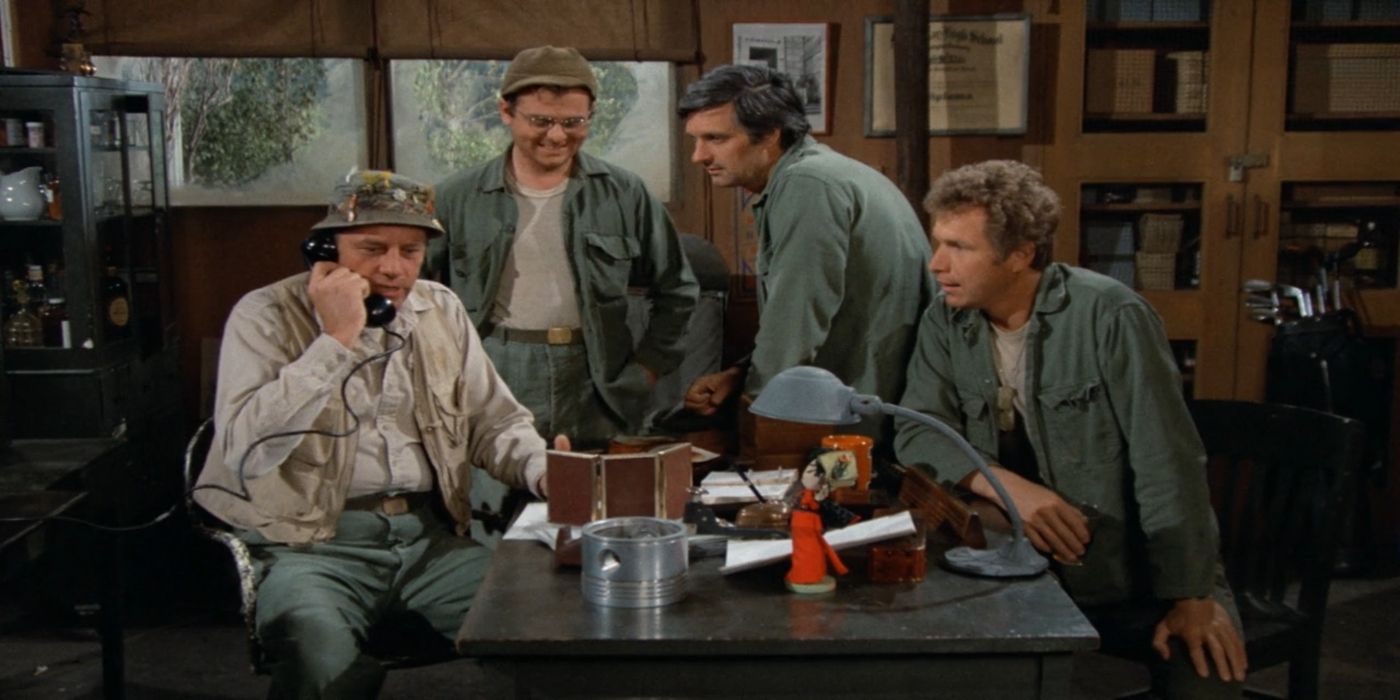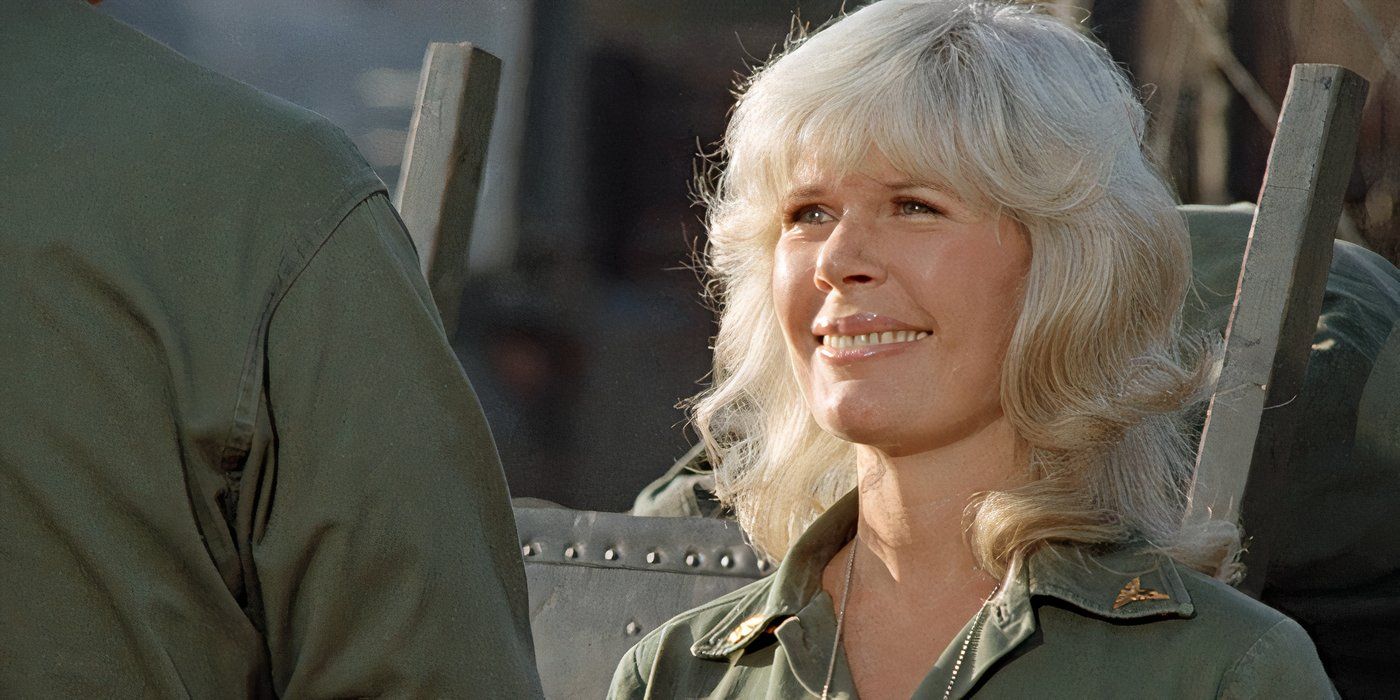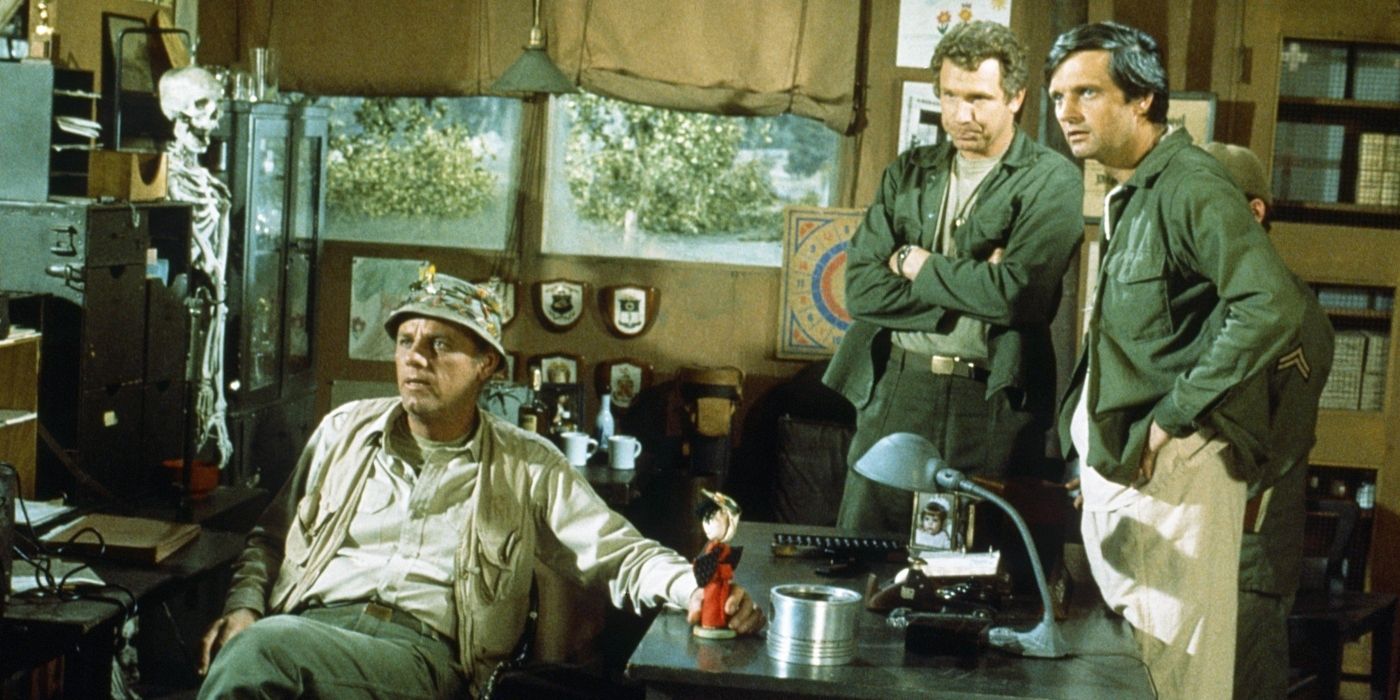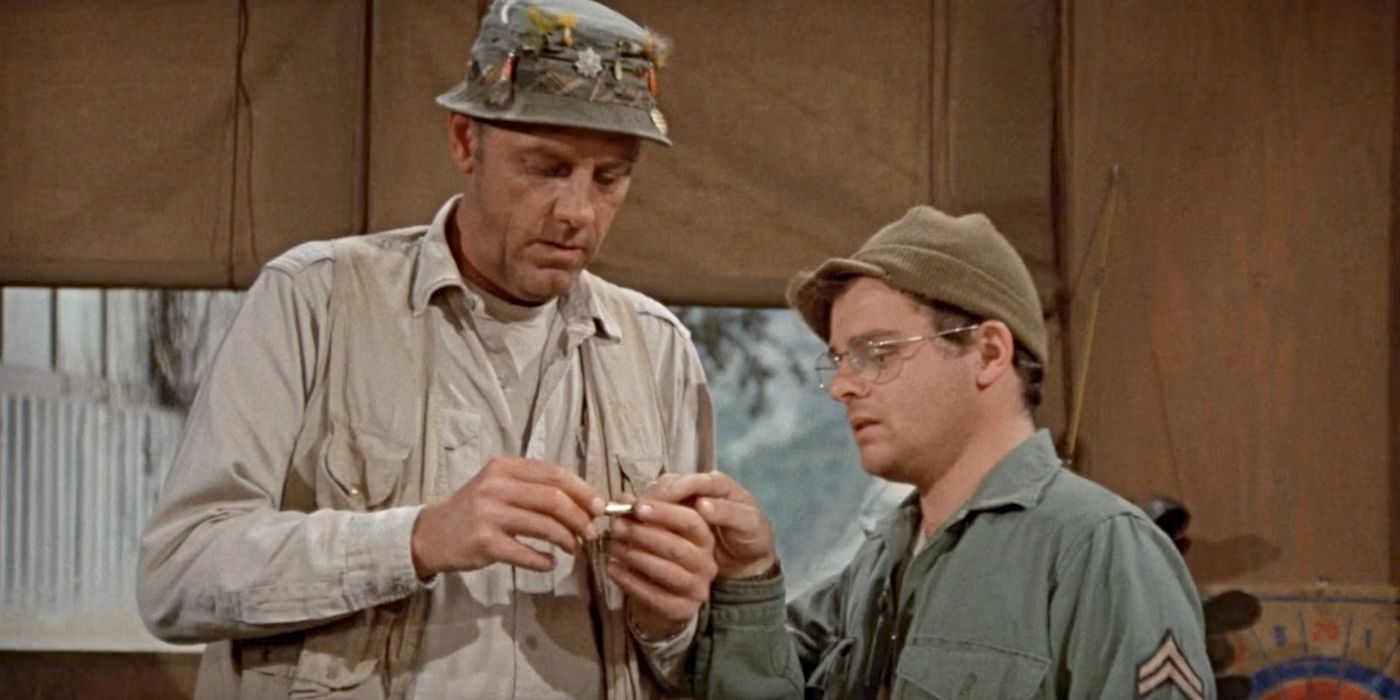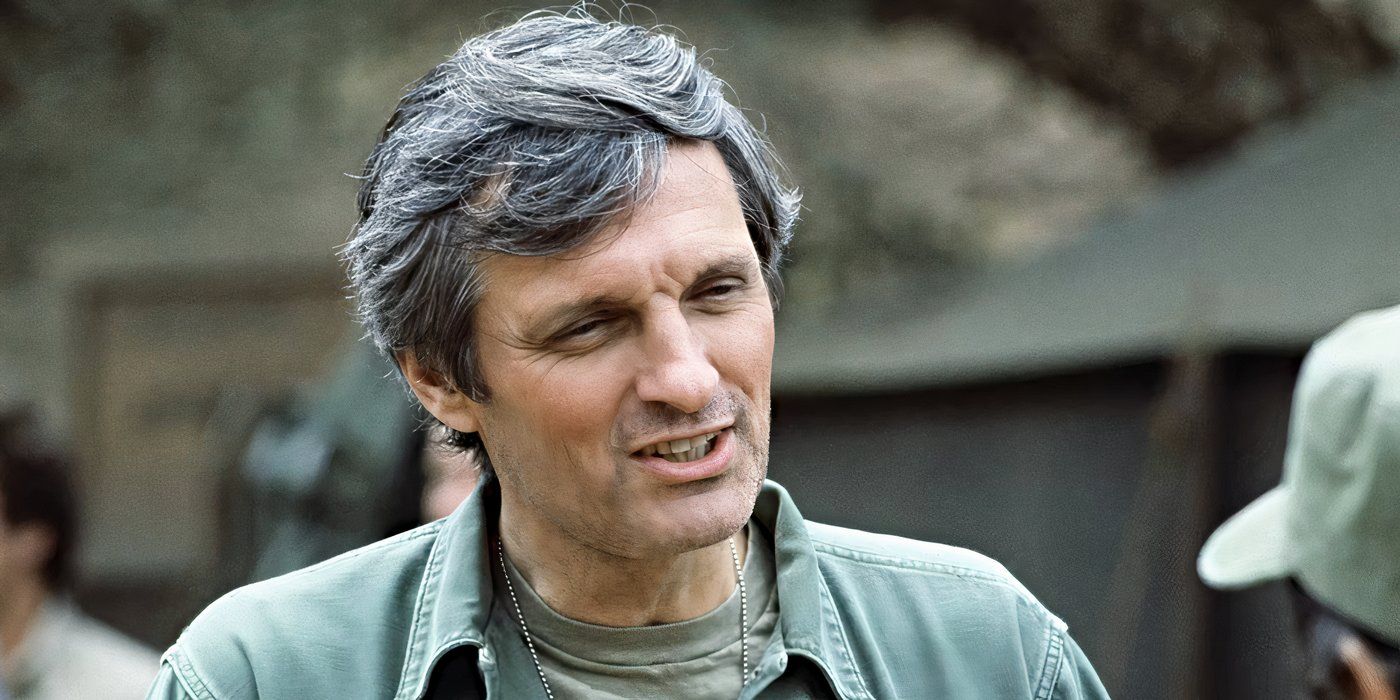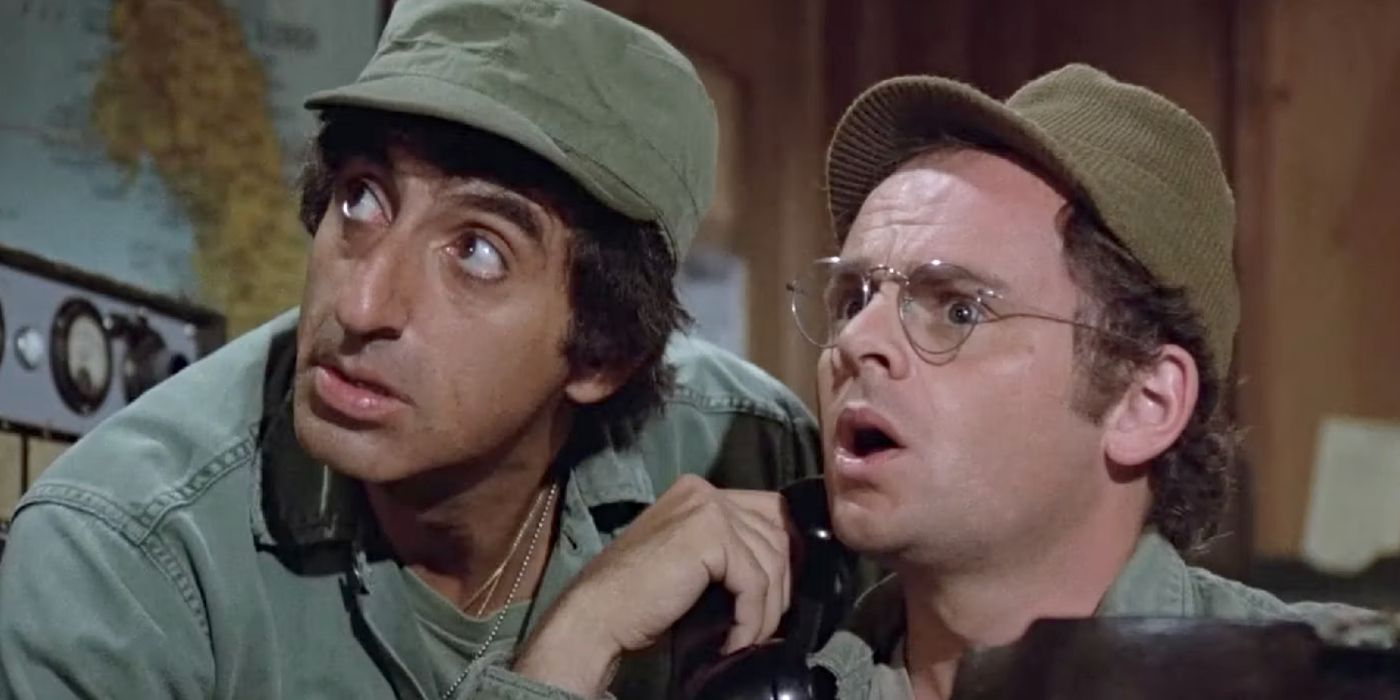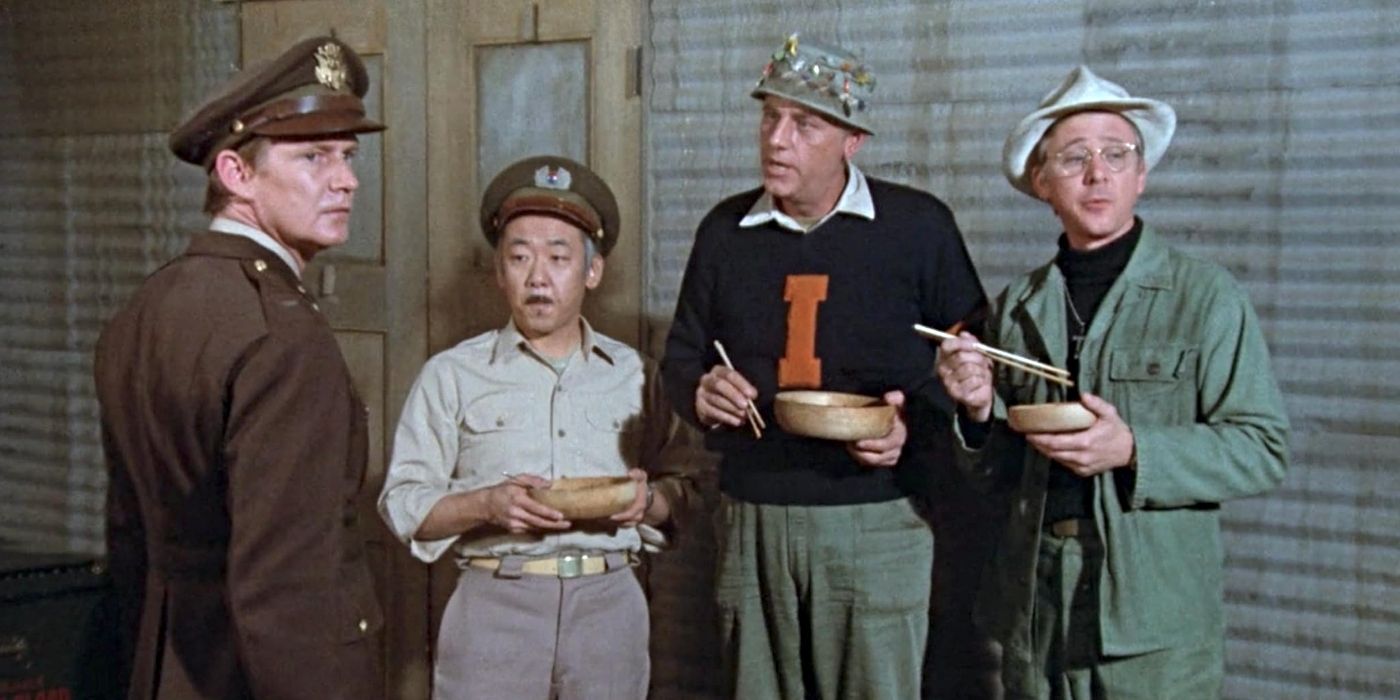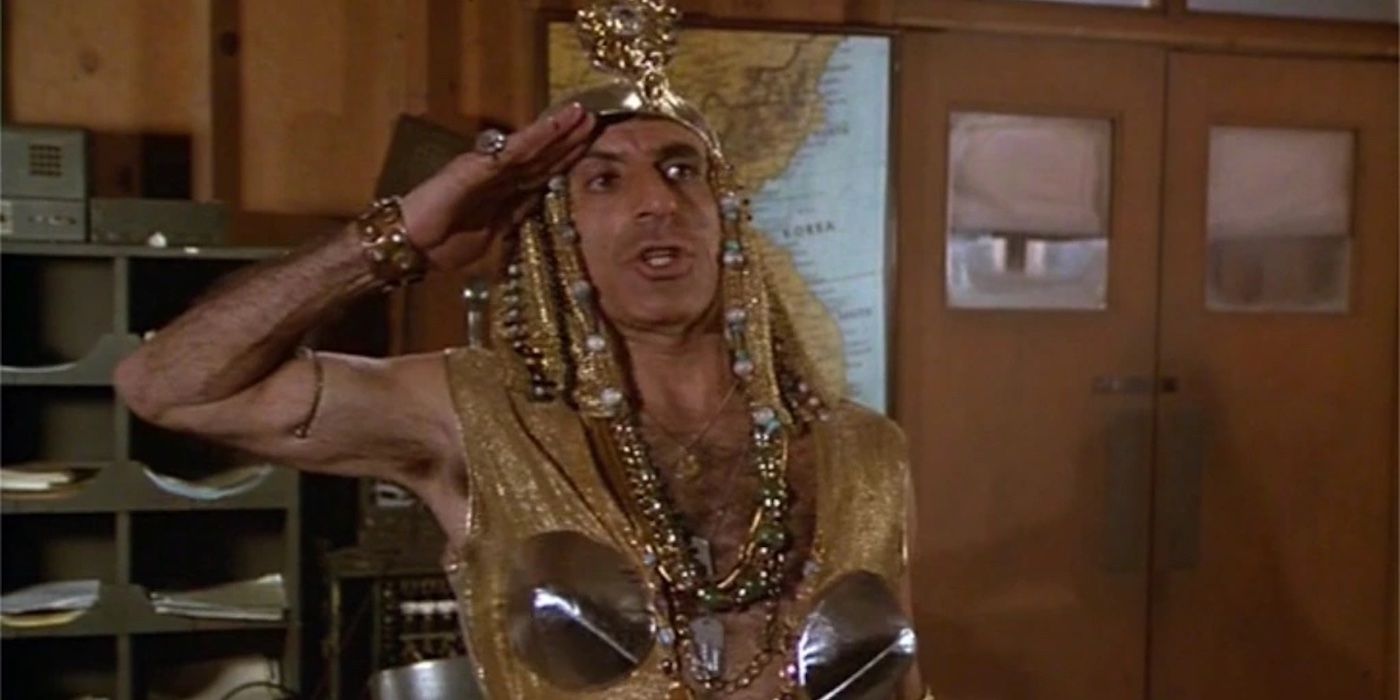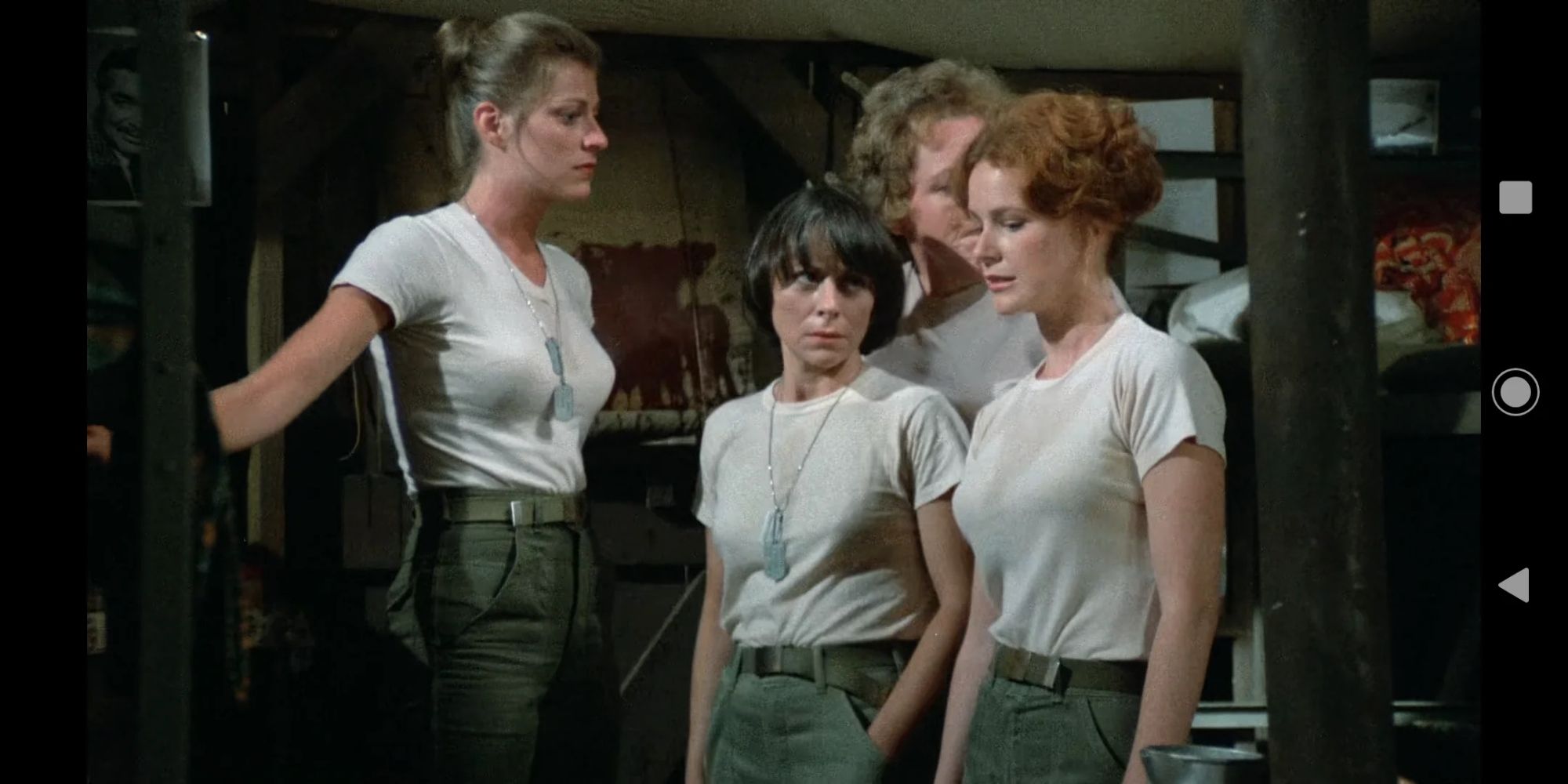10 Harsh Truths About Watching ‘M*A*S*H’ In the present day
[ad_1]
M*A*S*H was so typically thought-about forward of its time throughout its run from 1972-1983. The present adopted a forged of characters stationed at an American M*A*S*H unit through the Korean Conflict. All through its run, the collection dealt with many tough topics, like racism, homophobia and sexism within the army, PTSD and substance use issues, and the general devastating results of struggle. Whereas the collection was a comedy, it by no means shied away from showcasing these tough topics in a approach that was typically revolutionary for its time.
Whereas a lot of M*A*S*H holds up in a contemporary context, there are sadly parts of the collection that have been problematic even when the collection was on the air. For instance, there was a notable lack of Korean illustration all through the collection, though it was set in Korea. Moreover, there was a noticeable lack of variety even if many POC served within the American army, together with the Korean Conflict. These points have been evident in real-time, and have been generally even addressed by the collection itself.
10 The Snigger Observe Undercut the Severe Moments on the Collection
Even Although it Was the Norm on the Time
In the early days of M*A*S*H, the collection relied closely on the snigger observe because it featured primarily comedic tales. Nevertheless, because the collection continued, the snigger observe was used much less and fewer. M*A*S*H by no means used the snigger observe in any scenes that have been set within the working room, even when jokes have been being made. Finally, the collection moved away from utilizing the snigger observe in any respect in the direction of the tip of its run because it dealt with extra critical storylines.
Whereas many comedies from the identical period as M*A*S*H and past used snigger observe commonly, it was significantly misplaced on this collection. Whereas there have been loads of comedic moments, the comedy was typically of a darker nature contemplating the truth that M*A*S*H was set throughout a struggle. The elimination of the snigger observe earlier within the collection may have made M*A*S*H much more noteworthy than it will definitely grew to become as it could have set a precedent.
9 Timeline Points Have been Usually Obviously Apparent
It Did not Assist That the Collection Exceeded the Runtime of the Korean Conflict
In M*A*S*H‘s early seasons, timelines and continuity have been pretty straightforward to comply with. Nevertheless, because the collection itself ran longer than the precise Korean Conflict, the collection’ timeline grew to become progressively messier. Whereas this typically wasn’t a difficulty when it got here to the precise tales that have been featured on M*A*S*H, at a sure level, it grew to become a distraction. Small continuity indicators, like calendars with the month and yr or references to battles that passed off through the Korean Conflict, in the end meant little or no within the context of the collection’ general timeline.
Specifically, M*A*S*H Season 9, Episode 6, “A Conflict for All Seasons”, threw a curveball when it got here to the timeline of the collection. Whereas this episode was progressive and well-regarded as a result of it passed off over a whole yr, it fully disrupts any semblance of continuity that the collection had established up thus far. Due to this, it’s tough to completely respect the truth that M*A*S*H truly passed off throughout a three-year struggle that was so harmful in such a brief period of time.
8 The Collection Was Usually Riddled With Sexist Portrayals of Girls
There Have been Many Feminine Characters That Deserved the Highlight
M*A*S*H established itself as a male-centric collection from the start. Whereas this is sensible on a logistical stage since most individuals combating the Korean Conflict have been males, it is vital to keep in mind that many ladies have been additionally concerned within the Korean Conflict, as members of the army and as civilians. All through the collection, ladies have been typically handled as intercourse objects for his or her male friends. Male characters ceaselessly didn’t take “no” for a solution and jokes about sexual assault have been jarringly frequent.
The collection’ sexism was sadly illustrated via one in all its protagonists, Main Margaret Houlihan (Loretta Swit). Whereas she in the end had probably the most character growth of all the feminine characters featured within the collection, she is demeaned and dismissed regardless of her rank within the early seasons. Margaret’s growth in later seasons arguably illustrates the truth that the powers that be realized that the ladies on the present wanted to be proven in a extra three-dimensional approach.
7 Alcohol Use Dysfunction is Handled Flippantly
Many Characters Self-Medicated With Alcohol
Hawkeye (Alan Alda) and Trapper (Wayne Rogers) assemble a selfmade gin distillery of their tent close to the start of the collection. It is a supply of humor all through the collection, and B.J. (Mike Farrell) merely stepped into Trapper’s sneakers to maintain the makeshift distillery up and working. All through the collection, many different characters use alcohol, typically to extra, whereas spending countless hours on the unit the place nothing occurs between moments of chaos.
Whereas M*A*S*H finally options storylines emphasizing the seriousness of alcohol use dysfunction, there have been few to no penalties ever proven. These storylines not often reckoned with how unsettling it was to have surgeons ingesting so persistently whereas needing to be on name in a struggle zone. Within the later seasons, there have been characters, together with Helen (Gail Strickland), a good friend of Margaret’s who needed to reckon with the results of alcohol use dysfunction. Hawkeye additionally needed to look at his personal alcohol use finally.
6 Marital Infidelity is Joked About and Normalized
Trapper John, Henry Blake, and Frank Burns Have been the Prime Offenders
The married men of M*A*S*H have been typically overtly dishonest on their wives within the early seasons. Trapper John made no secret of the truth that he slept with many nurses regardless of having a spouse in the US. Frank Burns (Lary Linville) was married however was overtly in a relationship with Margaret through the early seasons. Even Henry Blake (McLean Stevenson), the 4077’s first beloved chief, overtly cheated on his spouse with nurses as effectively. None of those males ever severely reckoned with the potential penalties of their actions.
M*A*S*H finally addressed this situation in later seasons by firming down storylines involving dishonest. Moreover, B.J. instantly feels regret when sleeping with a nurse who had not too long ago been divorced in Season 5, Episode 6, “Hanky Panky”. Whereas the episode revolves round B.J. feeling unhealthy about his actions, he nonetheless is not proven to truly inform his spouse about his second of infidelity and face any actual penalties past his emotions. General, infidelity was handled as an inevitability of struggle reasonably than a deliberate selection.
5 The Collection Was Extraordinarily American-Centric
The Korean Conflict Concerned UN Member Nations
The Korean Conflict concerned troopers from many countries converging onto the Korean Peninsula. Whereas M*A*S*H featured the occasional look by a soldier from one other nation, many of the collection revolved round American characters completely. Even secondary characters are nearly all American. M*A*S*H‘s lack of stories featuring soldiers from other countries positioned the members of the 4077 in a field as they solely had their very own experiences to depend on.
As a M*A*S*H unit, it could have made sense for the medical employees to come across troopers from all backgrounds. Medical models handled enemy combatants and allies alike. Subsequently, it could have made rather more sense for the members of the 4077 to no less than briefly work together with extra troopers from totally different nations. By not showcasing troopers from totally different nations, it was arduous to show the members of the 4077, and viewers by extension, to totally different views in regards to the struggle.
4 The Collection Notably Lacked Variety
There Was Solely One POC within the Essential Solid
M*A*S*H’s lack of diversity in its essential forged is obvious from its early days. Capt. Oliver Harmon ‘Spearchucker’ Jones (Timothy Brown) was initially meant to be part of the internal swamp, earlier than the character was written off within the title of sustaining historic accuracy. Other than Klinger (Jamie Farr), the principle forged featured solely white actors. The dearth of POC in essential roles is one thing that remained the identical all through the collection.
Despite the fact that many M*A*S*H episodes and storylines tackled racism, the collection by no means took the chance to showcase any POC as a distinguished member of the principle forged. Whereas variety in tv might have been in its early days in the US, many collection, like Good Occasions and The Jeffersons, already highlighted Black ensemble casts. Additional again, Hogan’s Heroes featured a Black character, Sergeant James “Kinch” Kinchloe (Ivan Dixon) as a member of an ensemble forged that includes the US Army.
3 M*A*S*H Did an Ineffective Job at Portraying Koreans Themselves
Regardless of the Truth the Conflict was on Their Peninsula
While M*A*S*H took place during the Korean War, it not often featured tales about precise Koreans. Whereas Korean civilians have been most impacted by the struggle of their dwelling, M*A*S*H featured few of their tales. The Koreans that have been featured all through the collection have been typically not Korean. Oftentimes, Koreans have been performed by Chinese language or Japanese actors. Quickly-Tek Oh and Phillip Ahn have been two notable exceptions. Each actors have been born in Korea and later immigrated to the US, and each performed a number of roles in M*A*S*H.
The truth that Korean storylines have been not often part of M*A*S*H made it potential for characters to be constructed as charicatures of Korean individuals. Many characters typically spoke in exaggerated accents and spoke the Korean language inaccurately. Whereas it would not be correct to say that actors themselves deliberately portrayed Koreans disrespectfully, the dearth of effort to forged Korean actors stays evident. There have been alternatives for M*A*S*H to showcase simply how devastating the Korean Conflict was for Koreans themselves.
2 Klinger’s Part 8 Gag Would not Age Nicely
A Part 8 was One thing Severe
One hallmark of M*A*S*H was Klinger persistently attempting to get himself discharged with a “Part 8”. Part 8 was a World Conflict II-era United States Military regulation that was used to discharge servicemembers who have been declared mentally unfit for army service. This sort of discharge was typically used towards members of the LGBTQ+ neighborhood. All through his tenure on M*A*S*H, Klinger typically dressed as a lady to realize his purpose of being discharged on this approach.
Whereas Klinger’s makes an attempt to get discharged from the military by sporting clothes are nonetheless fairly humorous, it needs to be mentioned to be discharged below Part 8 typically carried penalties. Individuals who have been discharged below a Part 8 may face penalties of their civilian lives. M*A*S*H doesn’t reckon with this chance. Finally, Klinger stopped his makes an attempt to get discharged below this provision, so it’s potential his character thought-about these potential penalties off-screen.
1 The Portrayal of the Nursing Occupation Ages Poorly
Nurses are Not often Given Their Correct Respect
For the first few seasons of M*A*S*H, nurses are proven to be little greater than decorations for the unit’s docs and different male medical employees. It’s not till M*A*S*H discovered its stride that it started to discover the roles that nurses would realistically have taken on in a M*A*S*H unit through the Korean Conflict. Other than Margaret, there are just a few nurses featured all through the collection who get an opportunity within the highlight. Due to this, nursing typically appears extremely straightforward in M*A*S*H, and sometimes entails little greater than standing round.
Within the later seasons, M*A*S*H rectified this drawback by generally turning the highlight to the nurses. At any time when the nurses on M*A*S*H acquired an opportunity at character growth, it was clear that not solely have been these ladies dynamic in their very own proper, however that they performed expert medical professionals. M*A*S*H finally showcased tales of nurses who had a wide range of ambitions, and who confronted simply as a lot hazard as their male colleagues. Sadly, these tales have been too few and much between.
[ad_2]
Source link
